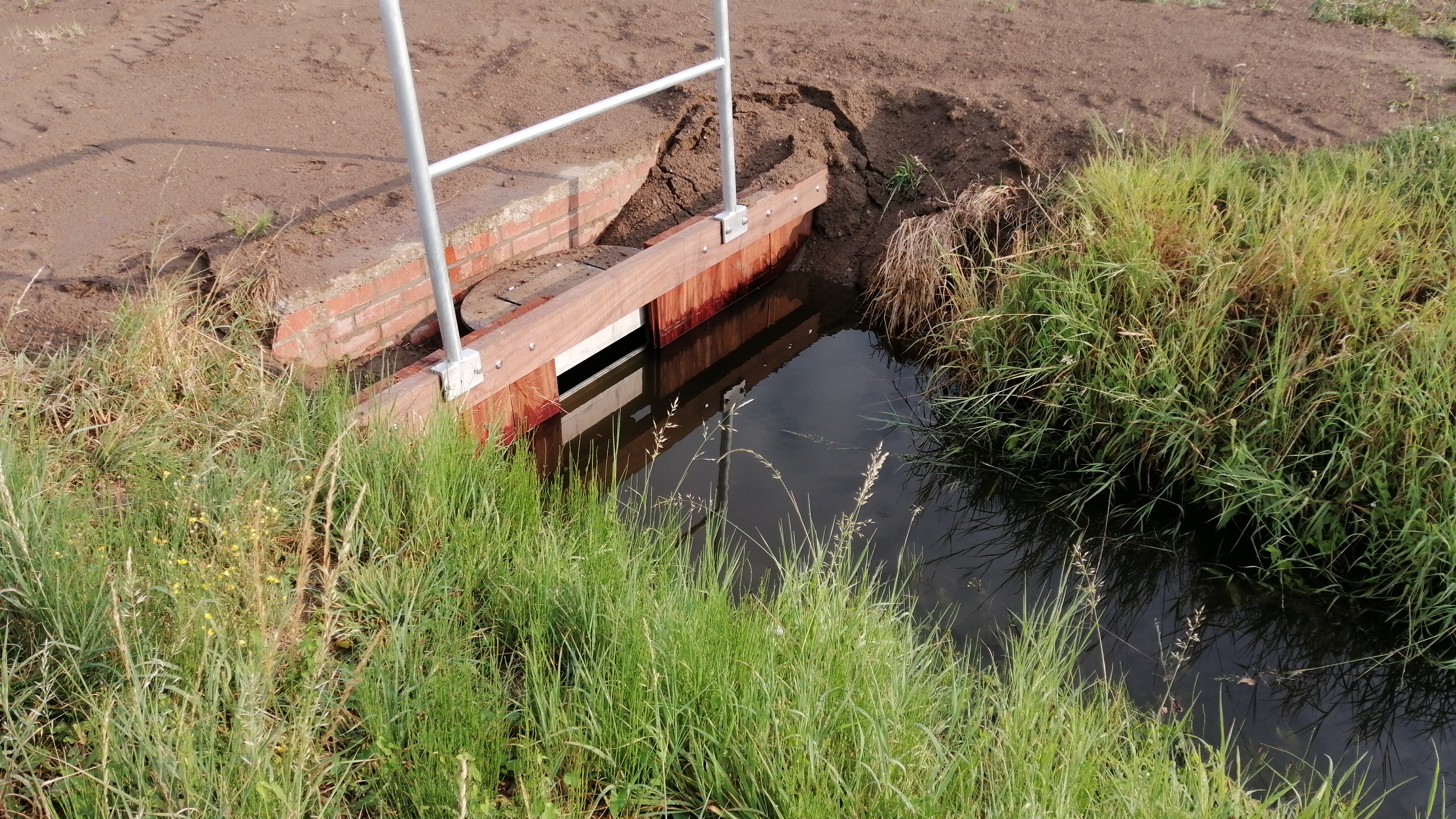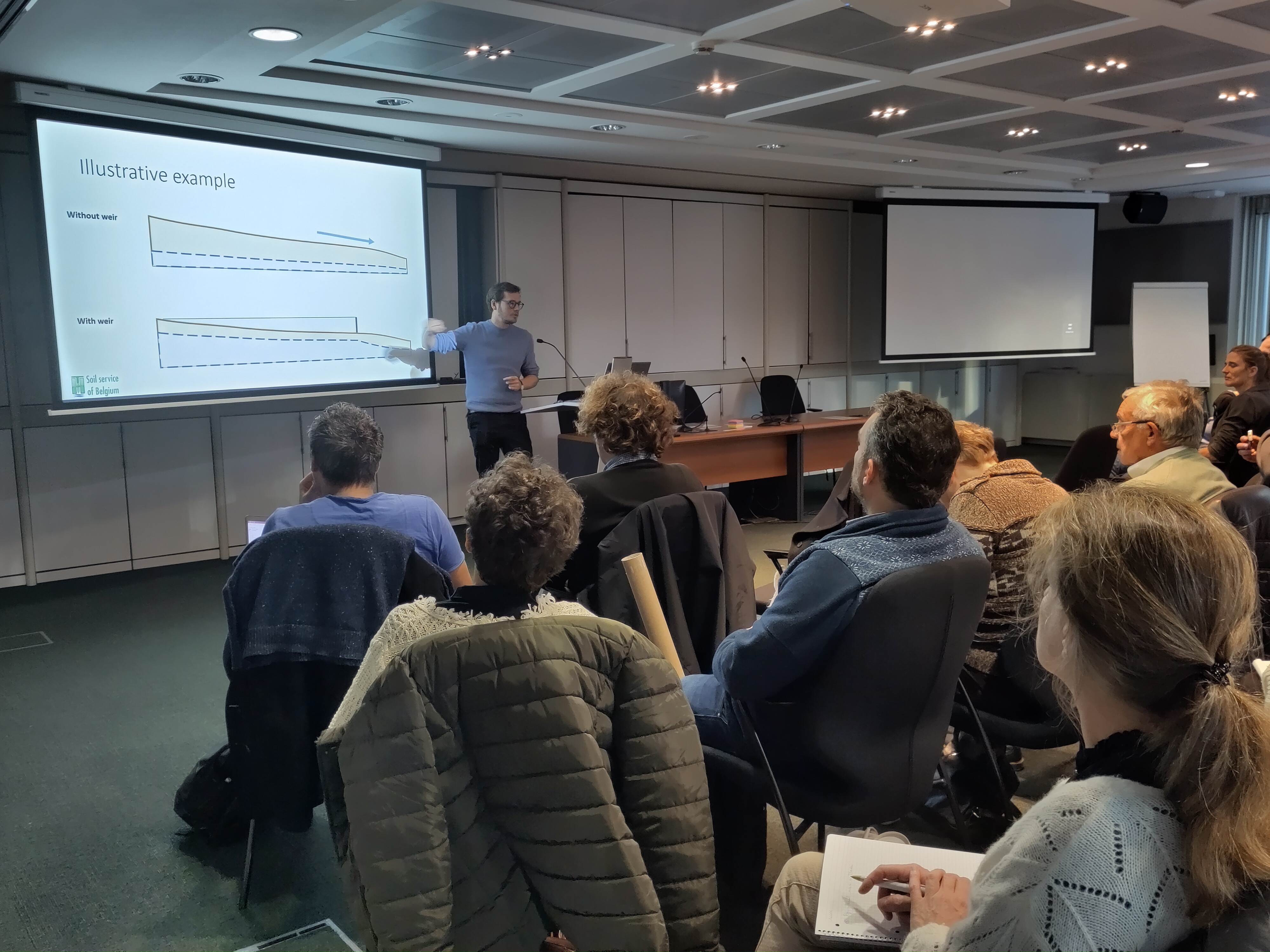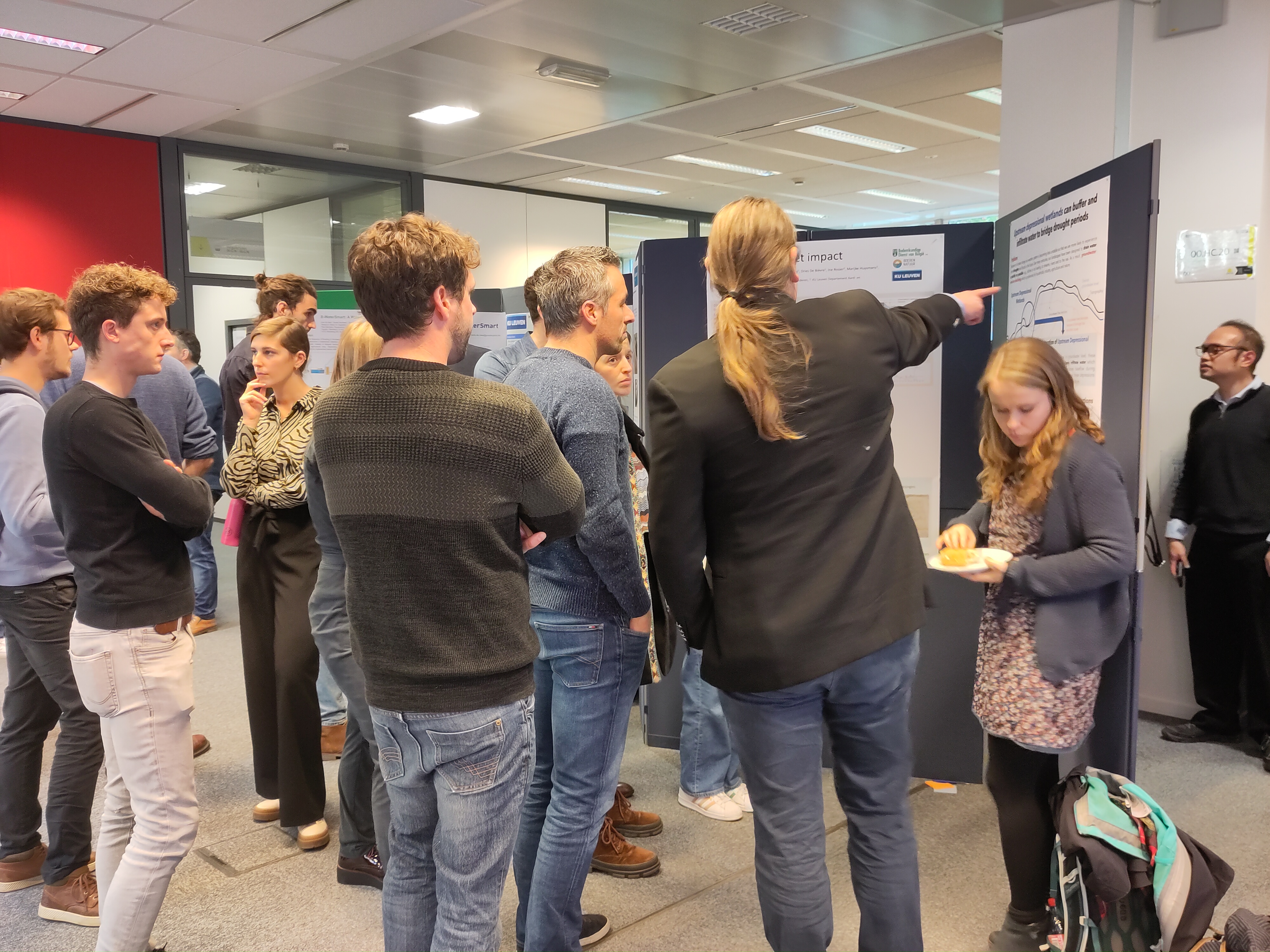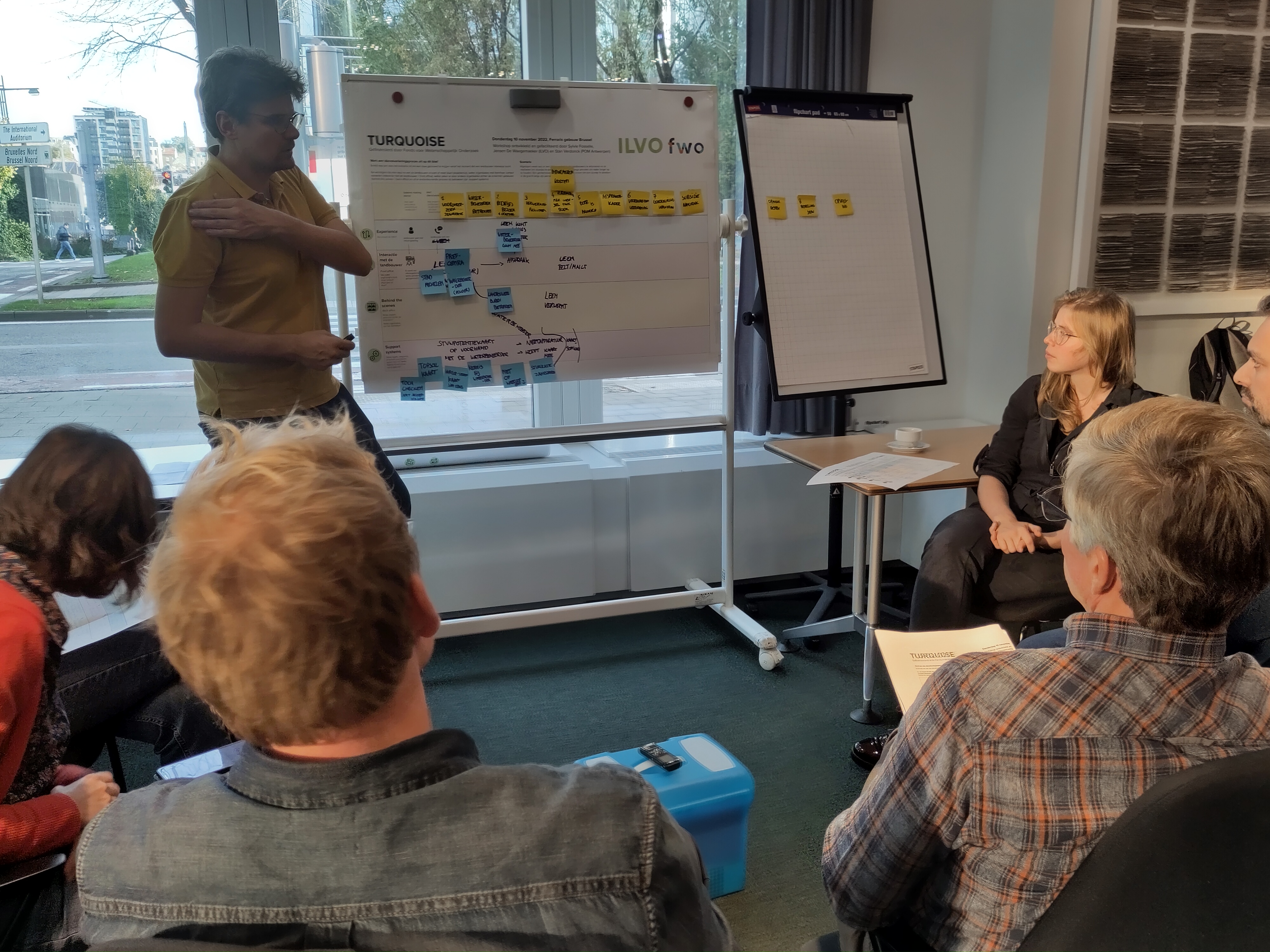Seminar - Monitoring, modeling and management of phreatic groundwater levels
Book of abstracts
When? 10 November 2022 9:00-16:30
Where? Graaf de Ferrarisgebouw, Brussels
About¶
Water management in Flanders faces major challenges to better adapt society to increasingly frequent weather extremes. The Flemish landscape is drained on a large scale and smarter drainage might lead to a significant increase in water storage. Recently, many new research and demonstration projects have been started that study how different forms of level control and active water level management in canals and drainage pipes influence groundwater recharge and water storage in the soil. This study day will bring together researchers, water managers and users to share and discuss their methods and results.

Program¶
Part I: scientific knowledge exchange through presentations in thematic sessions (9:00 - 13:30) NL/EN¶
Presentations (9:00-11:45, Ferraris - 01.G.20 - Auditorium)¶
Time slot | Presentation | |
|---|---|---|
9:00-9:05 | Sarah Garré | Welcome |
9:05-9:20 | Valkenborg et al. | |
Convenor: V. Bellinckx | ||
9:20-9:35 | Verreydt et al. | |
9:35-9:50 | Pinza et al. | Analytical element modelling (AEM) as a tool to quantify the impact of weirs on groundwater levels |
9:50-10:05 | van Eertwegh et al | |
10:05-10:25 | COFFEE BREAK | |
Convenor: S. Garré | ||
10:25-10:40 | de Wit et al. | |
10:40-10:55 | Mehmandoostkotlar et al. | Controlled drainage as measure to manage salinity in Polder context |
10:55-11:05 | Vanderborght et al. | An integrated dynamic hydrological model of central Europe including Flanders |
11:05-11:15 | Poster authors | Flash presentation of 1 min per poster |
Moderator: S. Fosselle | ||
11:15-11:45 | Discussion with guest Nathalie Leynen | What are knowledge needs for water managers and policy-makers? What is still missing? |

Lunch and poster session (11:45-13:30, Ferraris - 00.G.72 - Foyer)¶
Graphic overview of the morning presentations and time to add information/questions/suggestions in what is lacking to upscale this research to scales relevant for water managers and/or policy makers.
De Vleeschouwer et al. , Assimilatie van een dens netwerk van IoT-peilmetingen in een hydraulisch model in het stroomgebied van de Grote Struisbeek
Broeckx et al., The potential of upstream depressional wetlands in restoring the water system
Colman et al. , Impact of agricultural weirs on groundwater recharge
Coussement et al., Stuwviewer met impact
Coussement et al., Opportuniteiten van peilgestuurde drainage in Vlaanderen
Dieter Vandevelde, Kreekruginfiltratie in combinatie met peilgestuurde drainage
De Bièvre et al., Subirrigation
Moustakas and Willems Investigating the effects of blue-green measures for adaptation to droughts at the catchment scale

Part II: workshop on services to farmers for installing and managing weirs (13:30-16:00, Ferraris - 00.G.20, NL)¶
Moderatoren: S. Fosselle, J. De Waegemaeker
Het plaatsen van stuwtjes in landbouwgebied is één van de blauwgroene strategieën die steeds meer toepassing kent in Vlaanderen. Ondanks de groeiende aandacht en interesse voor stuwtjes binnen de landbouwsector kampt de realisatie van stuwtjes op het terrein nog met veel moeilijkheden. Via het kader van Service Blueprint visualiseren en analyseren we samen met betrokkenen van diverse Water-Land-Schap coalities de praktische dienstverlening voor en ontzorging van landbouwers om stuwtjes te plaatsen en te beheren. De workshop focust op concrete praktijkcases.
Moderators: S. Fosselle, J. De Waegemaeker
The placement of weirs in agricultural areas is one of the blue-green strategies that is increasingly being implemented in Flanders. Despite the growing attention and interest for weirs within the agricultural sector, the realization of weirs in the field still faces many difficulties. Through the framework of Service Blueprint we visualize and analyze together with stakeholders of various Water-Land-Schap coalitions the practical services for and support of farmers to place and manage weirs. The workshop focuses on concrete case studies.
